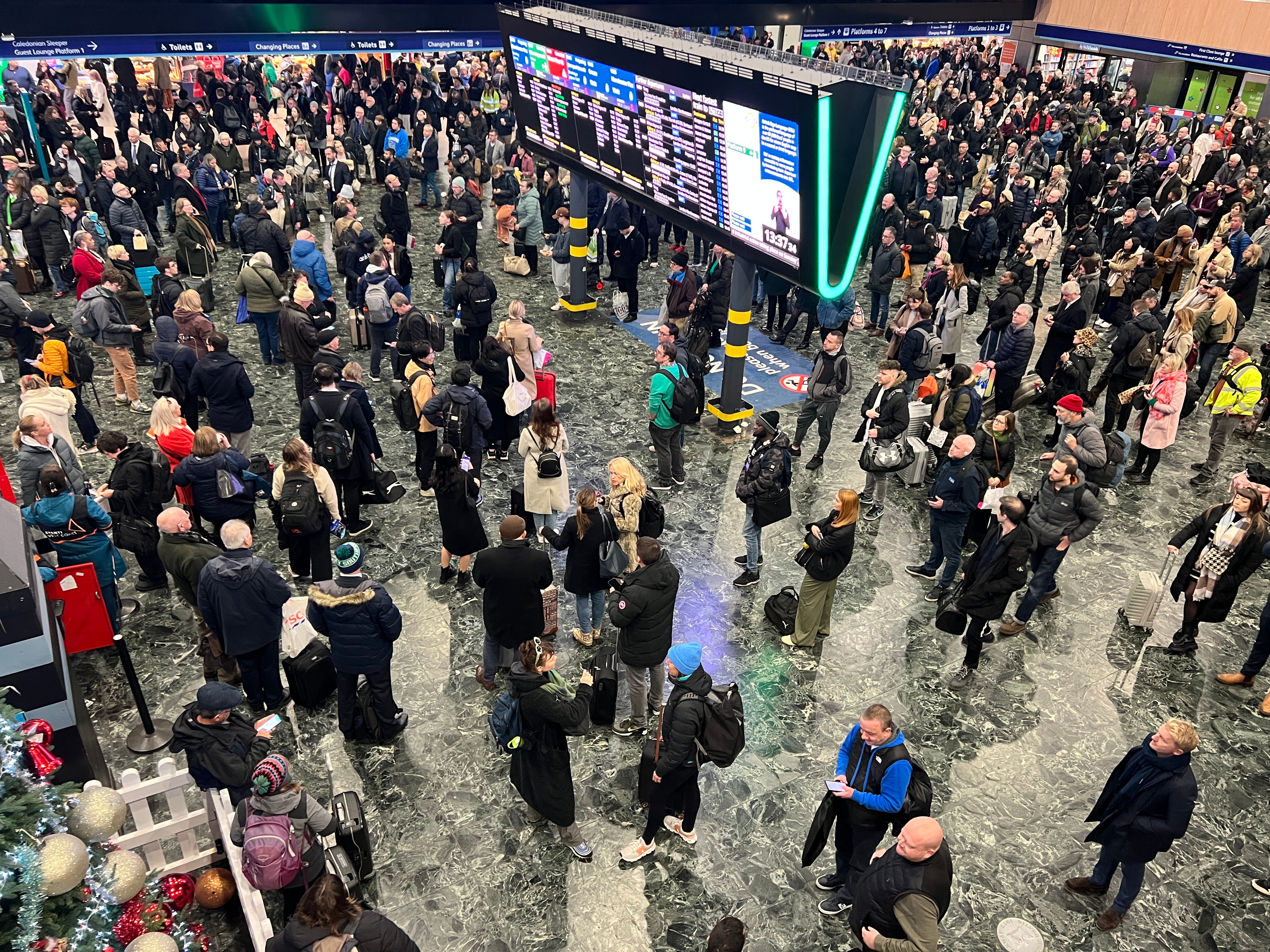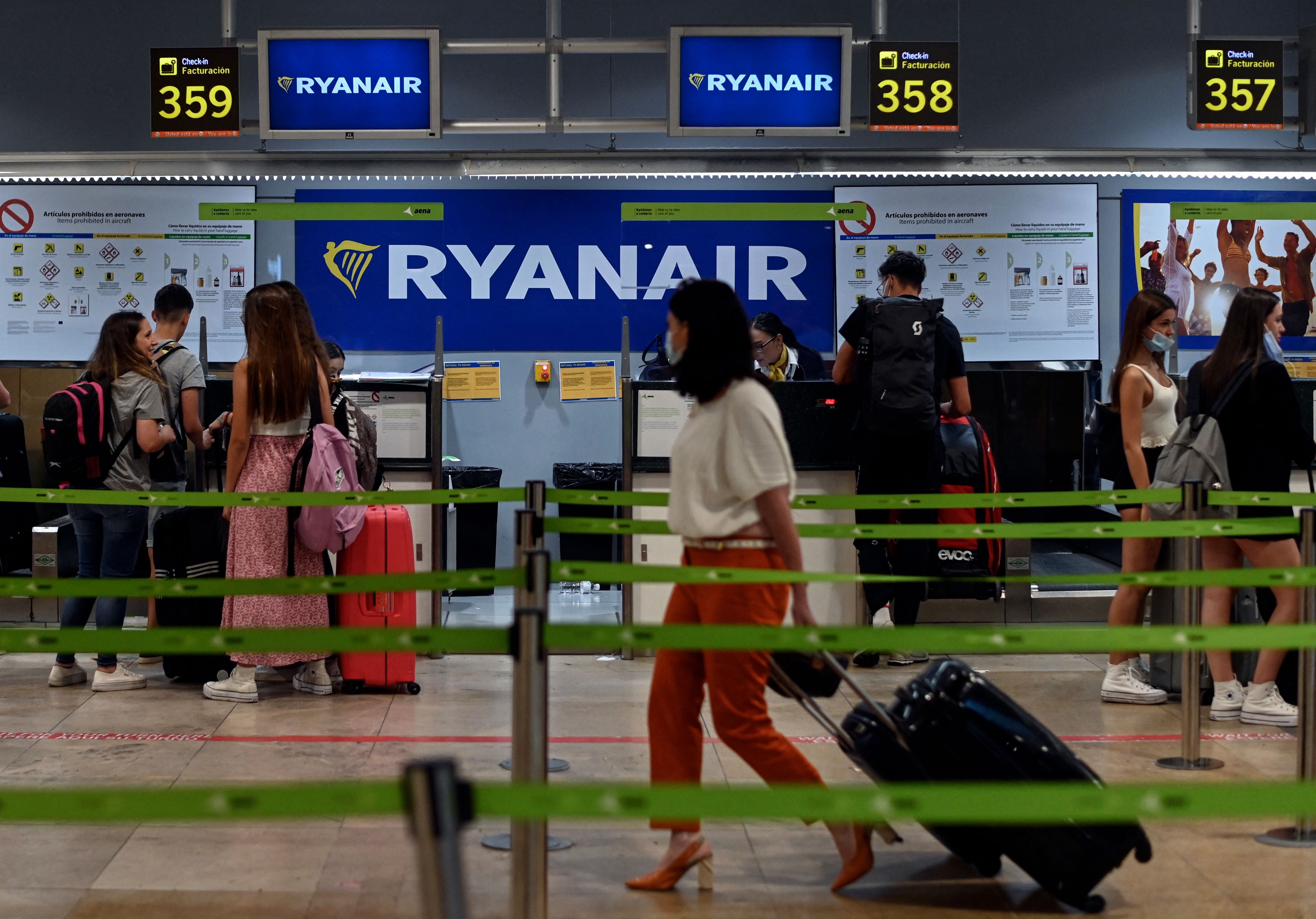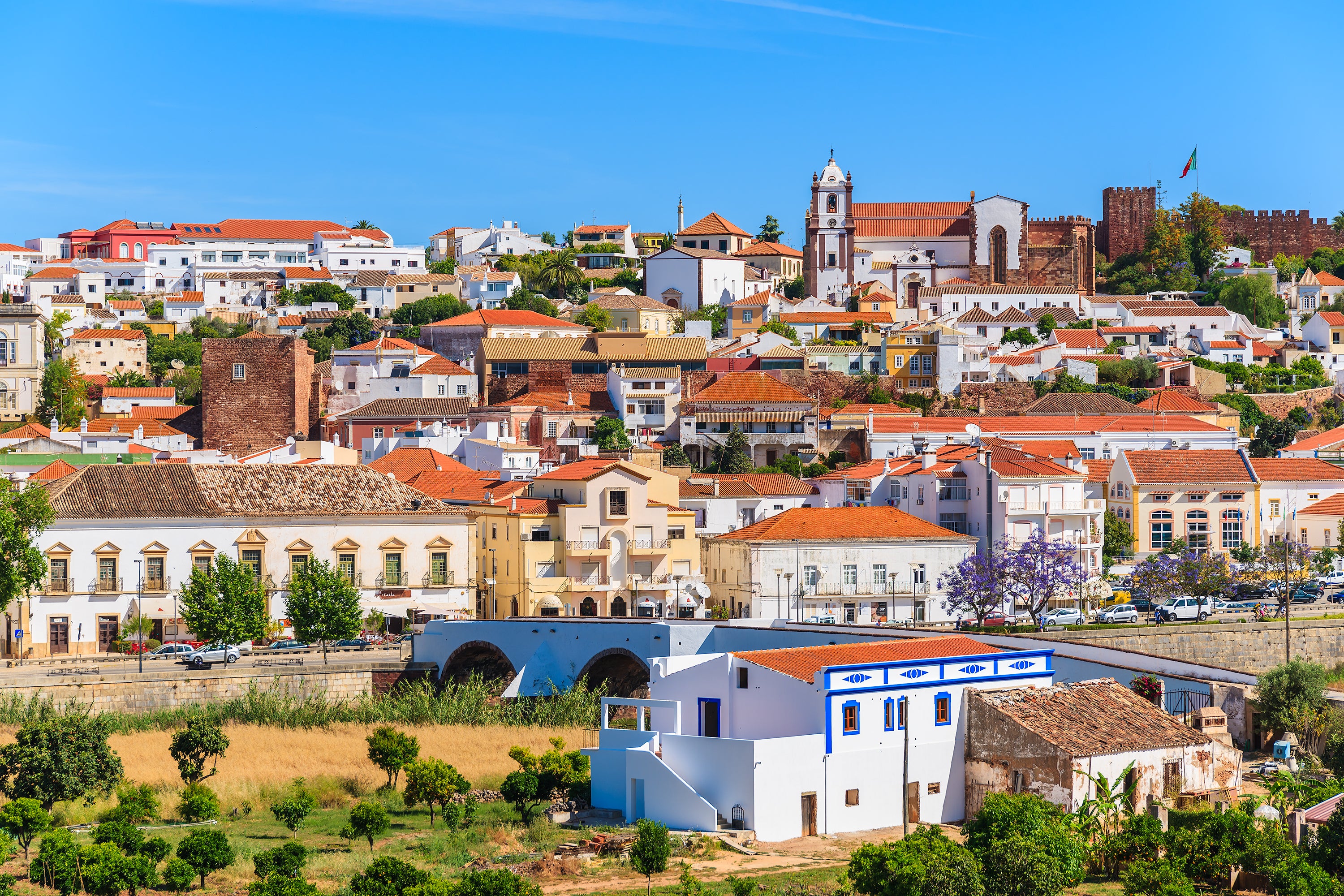Will there be any rail strikes over the festive period?
Simon Calder answers questions on festive strikes, new boarding pass changes at Ryanair, and Stockholm


Q Will there be any rail strikes over Christmas this year?
Lizzie C
A That is a timely question to ask. The nation’s railways have been in a pretty chaotic state for the past 18 months with repeated national strikes – including 12 days over Christmas 2022. On the workers’ side, the unions are the RMT (by far the biggest) and the train drivers’ union, Aslef. On the employers’ side: the 14 English train operators that are controlled by the government; some are private companies, others are public sector, but all are subject to direction by the Department for Transport.
The central issue is whether pay rises should be contingent on widespread reforms to working arrangements. Against a backdrop of a 20 per cent collapse in rail revenue, the employers and ministers believe that changes are essential for any pay rise to be awarded. One example: making Sunday part of the normal working week for all train operators. The unions say they will talk about changes but will expect an additional percentage for negotiating away hard-won employment terms.
The RMT has now been offered, and members have voted to accept, a no-strings rise of 5 per cent. Further negotiations will take place on a firm-by-firm basis in the New Year. The threat of RMT strikes has now been lifted at least until May 2024. So there is no risk of a repeat of last Christmas and New Year, when RMT members walked out for a total of 12 days from 13 December to 7 January.
In contrast, Aslef is still deeply in dispute, as shown by the current nine-day overtime ban and rolling regional walk-outs. Aslef has been taking industrial action intermittently since July 2022, with a mix of strikes and bans on rest-day working (which causes hundreds of daily train cancellations).
There is absolutely no indication of progress; no negotiations have taken place since April. So it seems certain that more stoppages will be called. The question is when? Strikes are decided by Aslef’s executive committee. Its next meeting starts on 11 December. In theory it could call a strike, which could not begin until Christmas Day because of the requirement to give two weeks’ warning of a walk-out. But festive engineering works mean there will be plenty of disruption anyway through to the start of 2024. So my strong sense is that there will be more strikes, but not until later in January.

Q I’ve read of an apparently new requirement for some Ryanair passengers to queue up at the airport for a boarding pass rather than using a code on their mobile phone. Could it be because Ryanair’s new Boeing 737 Max aircraft have more seats than their 737-800 aircraft? In the event of an equipment change, it could mean the unlucky few on a full flight could be moved onto the next one – which is something they would do at the check-in desk?
TTD
A Ryanair’s airport arrangements for passengers, like me, who prefer to avail of the basic fare on budget airlines without any added extras, abruptly changed at the weekend. The standard option to show a mobile boarding pass on their smartphone was not open to some of them. Instead, they were offered a choice between paying for an assigned seat – costing £8 or more – or queuing at an airport check-in desk for a paper boarding pass to their randomly assigned seat.
A spokesperson for the airline told me: “If passengers wish to avoid this seat fee, they can select a randomly allocated seat entirely free of charge.” That’s true, but it does not explain the current issue. So I have been studying the airline’s customer-care feed on social media. One passenger was told: “Due to popularity of reserved seats, Ryanair is keeping seats available until the end for those customers wishing to purchase. Some passengers will be assigned the last remaining seats at the airport for free.”
The idea that Ryanair has to hold seats back because people routinely decide at an airport to pay extra to reserve a space looks preposterous. All of us who are content with random allocation have declined repeated invitations to pay extra. But were I running late and/or the queue for boarding passes looked too long, I would reluctantly pay up – and it seems others are, too. The aim seems to be: to increase the number of passengers who pay for a specific seat by offering an unpalatable alternative: another airport hurdle and queue.
You smartly raise the “downgauging” issue: when an older 189-seat jet has to replace a newer 197-seat plane. This is a rare event, and when it happens there are almost always enough seats because of “no-shows”; Ryanair does not overbook. I have only heard of one confirmed incident. In common with other airlines such episodes are handled at the departure gate – with the carrier obliged to offer incentives to lure volunteers to offload, or pay cash compensation for involuntary denial of boarding.

Q Your top sights in Stockholm?
Rich B
A The City Hall in the Swedish capital is both mighty and adorable. The only way to view the interior is on a 45-minute, English-language guided tour. The highlights are the Golden Hall, with elements of early Hollywood, and the Blue Hall, where the annual Nobel banquet is held. The Nobel Prize Museum is also well worth visiting for the story of how Alfred Nobel made a fortune from dynamite and used it to fund the planet’s prizes for excellence.
Like Alfred Nobel, Artur Hazelius was wealthy, enlightened and altruistic. In 1891, as Scandinavia was racing towards an industrial future, he decided to preserve aspects of the traditional way of Swedish life in a museum named Skansen on the island of Djurgarden, a short ferry ride from the centre of Stockholm. Almost 200 buildings have been preserved here, covering a timescale from the early 14th century to the 1950s.
Djurgarden is the location for two more unique attractions. On 10 August 1628, a new warship, the Vasa, set sail on her maiden voyage as the pride of the Swedish Navy. Fifteen minutes later she keeled over and sank with the loss of 50 lives. For the next 333 years, this ill-conceived ship lay in the mud at the bottom of Stockholm harbour. In 1961 she was resurrected and now is at the heart of what is effectively a museum to hubris.
No jokes about old wrecks, please, for the newer nearby attraction: the Abba museum. This concise collection tells of one of the 20th century’s most enduring groups. In 2024 it will be celebrating 50 years since the fab Swedish four won the Eurovision Song Contest in Brighton. Book in advance and aim to be there at opening time, 10am.
My favourite cultural location, though, is half an hour west of the centre: Drottningholm Palace, accessible by Metro and bus. The 17th-century Unesco-listed royal residence comprises a palace at the heart of extravagant grounds. This Scandinavian Versailles is still the main home of the king and queen, and makes an excellent day out.

Q I’m off to Carvoeiro on the Algarve for a quick pre-Christmas break. Can you recommend one or two day trips for us?
Chris J
A Carvoeiro, about 20km west of the big resort of Albufeira, is reasonably well placed for day trips. The nearby town of Portimao – just 8km away – is a working port and has probably the least attractive environs of anywhere on the entire Algarve coast. But it has a pleasant enough old town at its heart, with some old-school bars and restaurants that are less expensive than more traditional tourist haunts. A further 20km along the shore, most enjoyably reached by frequent train from Portimao, is the lovely town of Lagos. It is beautiful and historic in equal measure, and a fair number of the excellent places to eat and drink should still be open even in midwinter. Depending on how much you want to fit into a day, you could even hop on a bus along the coast to the lovely fishing village of Sagres.
My other top recommendation is Silves, 10km directly inland from Carvoeiro. This is my favourite off-the-beach location, with a riverside setting and a deep sense of history in the old town. It was a stronghold during the Moorish occupation of the Algarve, and has an imposing castle – as well as a fine Gothic cathedral.
As you will undoubtedly be flying in or out of Faro airport, try to make time to see the city – effectively the capital of the Algarve – upon arrival or before departure. It is an easy bus or cab ride from the airport, and has a compact, walled heart that deserves exploration. Just outside the centre, on Rua de Loule, is one of my favourite seafood restaurants anywhere: Chefe Branco. I enjoyed my best meal of 2020 here, during one of the brief interludes when visiting Portugal without quarantine on return was permitted.
Email your question to s@hols.tv or tweet @simoncalder






Join our commenting forum
Join thought-provoking conversations, follow other Independent readers and see their replies
Comments